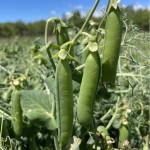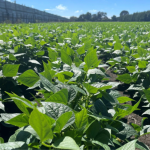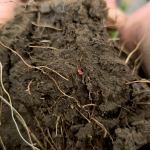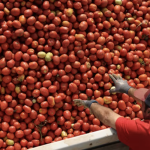McDonald’s Supports NZ Beef Sector in Emissions Reduction
Added 8 months ago

McDonald’s, which sources approximately 10% of its global beef supply from New Zealand and Australia, says New Zealand farmers are playing a valuable role in helping the company achieve its greenhouse gas (GHG) reduction goals.
Rebecca Honeysett, Head of Sustainability for McDonald’s NZ and Australia, spoke at Fieldays, highlighting the importance of data in tracking environmental progress. She said there is strong momentum in the sector that supports McDonald’s emissions reduction targets.
Rather than paying premiums for beef, McDonald’s has invested hundreds of thousands of dollars into projects aimed at improving on-farm environmental performance, including support for regenerative farming systems. These initiatives are part of a broader collaboration with farmers to improve sustainability outcomes.
Simon Kenny, Head of Impact and Communications for McDonald’s Restaurants NZ, said the company’s funding supports projects that assist farmers in enhancing their farm management practices.
Speaking as part of a panel at the New Zealand Roundtable for Sustainable Beef, Honeysett noted that New Zealand's pasture-based grazing systems position the country well for sustainable beef production.
McDonald’s has set a global goal to reduce Scope 1 and 2 emissions by 50.4% and Scope 3 emissions—those within its supply chain—by 7% by 2030, using 2018 as a base year.
Hawke’s Bay farmer Greg Hart emphasised the role of farmers in addressing environmental and nutritional challenges, noting that nature provides the solutions refined over millions of years.
Dave Harrison, Policy Manager at Beef + Lamb New Zealand, reinforced that sustainability remains a key priority for consumers, even amid rising global nationalism. He cited lifecycle analysis showing that New Zealand sheep meat has one of the lowest environmental footprints globally. He also stressed the need to communicate these strengths more effectively to international markets.
The NZ Farm Assurance Programme Plus (NZFAP+) is one tool helping to deliver on these goals, with 10,000 farmers already participating and qualifying stock receiving premium prices from meat companies.
Associate Agriculture Minister Andrew Hoggard said farm environment plans play a critical role in managing environmental impacts and identifying appropriate mitigation strategies. While how these plans are applied is up to individual farmers, he acknowledged their expertise in addressing challenges within their own properties and catchments.
Join the conversation
Be the first to leave a comment.
Leave a comment
All comments are reviewed before they are published on the website. Your email address will not be published.



Community Engagement and Knowledge Sharing Strengthen the Carbon Positive Project

Are We Changing Soil Carbon Yet? Three Years In, the Jury’s Still Out

Farewell to Trustee Phil Schofield – A Foundational Leader of the HBFFCT

